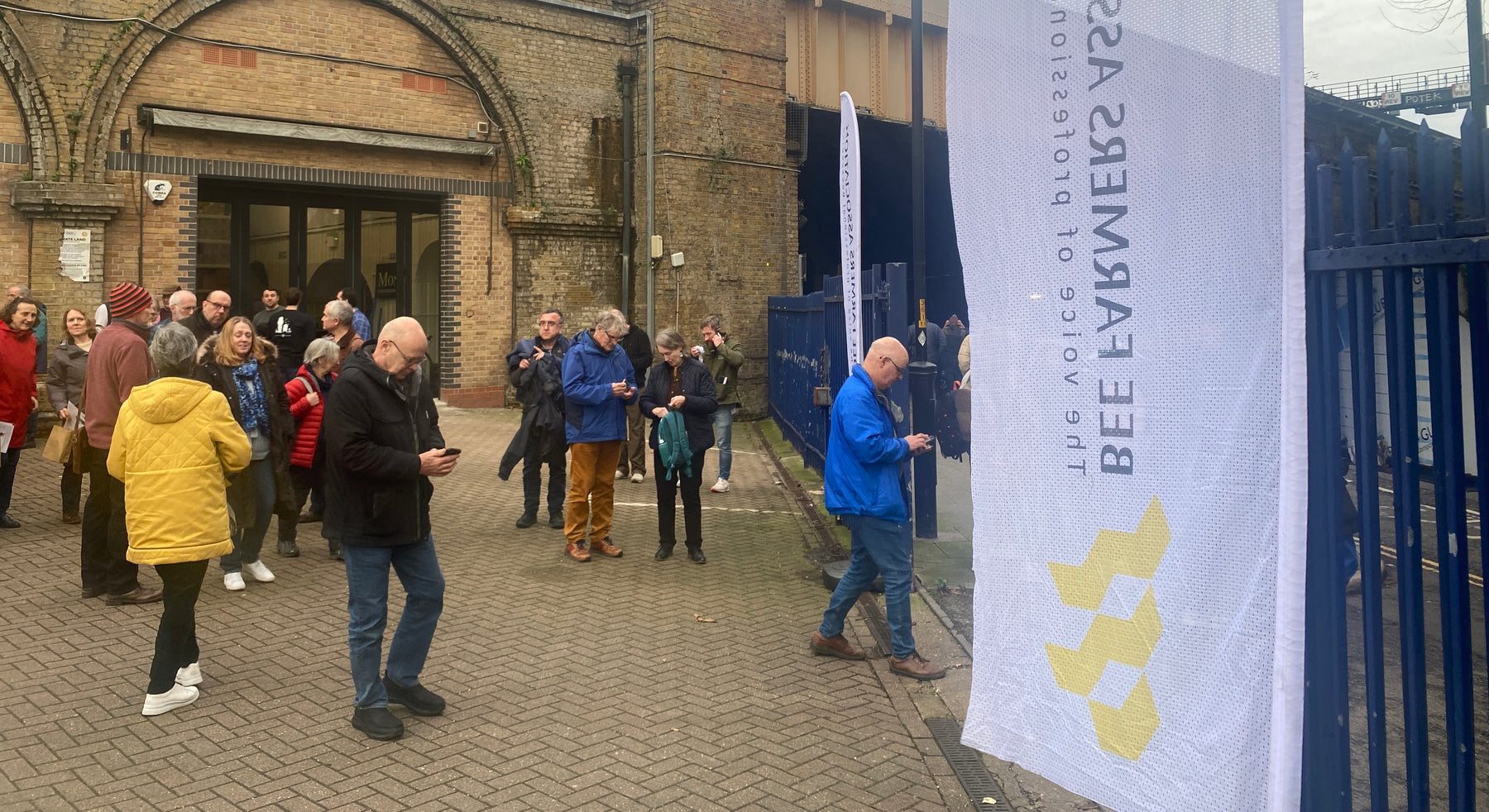
Hosting the Bee Farmers Association
Bee Farmers Association Professional Development Day
As part of our 25th Year celebrations, we were proud to host an industry event this week with the Bee Farmers Association, the voice of professional beekeeping in the UK. With almost 500 industry members, we were delighted to welcome a large number of them to our HQ, presenting our back-story and conducting a series of honey factory tours to the enthusiastic groups.
Spirits were high in a spring-like London, but the aim of the special event was quite a serious one, to raise awareness and develop resilience within the industry should the Asian hornet become established in the UK.
Asian hornets are a top predator of honeybees, with just one Asian hornet able to kill and eat up to 50 honeybees a day. They also prey on native pollinators such as bumblebees, and can have a serious impact on the pollination services these creatures provide. Spotting's are becoming more frequent, with a sharp rise in sightings of the invasive species in the UK during 2023. The current government strategy is to locate and kill every hornet and destroy all nests to prevent them from staying over winter and multiplying.
 .
. 
Experts in their field delivered a series of insightful and practical talks at the event including;
Nigel Semmence: APHA National Bee Unit Contingency Planning and Science Officer. Nigel gave an update on the current situation with Asian hornet in the UK, the detailed mapping and ongoing scientific research being conducted by Fera Science Ltd on behalf of Defra.
Dr Benjamin Poirot: Bee Farmer & Director of Apinov. Talked of his own personal experiences as a French bee farmer operating in a region where Asian hornet has been present for over a decade.

Monitoring for arrival of the Asian hornet is strongly encouraged throughout the UK, but especially in areas where likelihood of arrival is considered to be highest (S & SE England).
Find out more HERE
